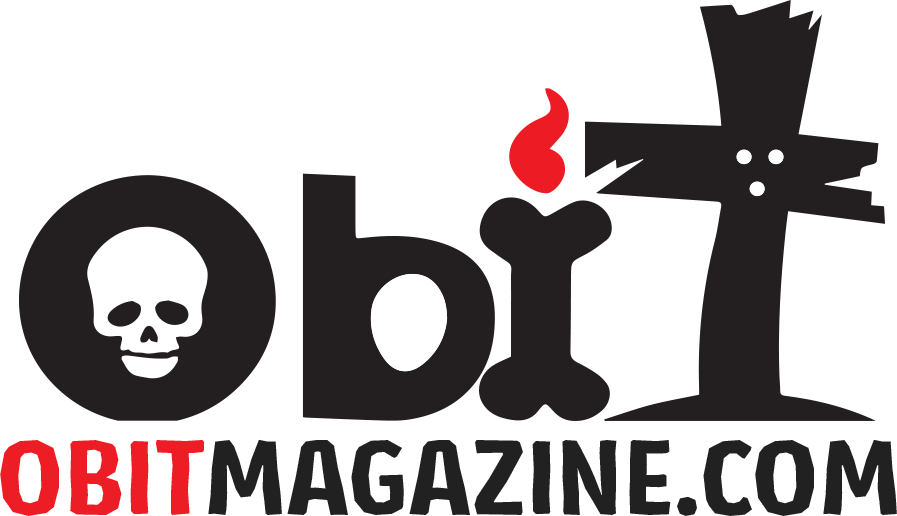Life on the road wasn’t easy easy for the Winter Dance Party. Traveling across the cold Midwest in a cramped, uncomfortable bus. So after a show in Clear Lake, Iowa, Buddy Holly decided to charter a plane to take him and his band to Fargo, North Dakota, just across the state line from their next date in Moorhead, Minnesota. The tour’s two other headliners ending up taking the place of Holly’s Crickets: Waylon Jennings gave up his seat to J.P. Richardson— the Big Bopper— while Tommy Allsup lost his seat in a coin toss with Ritchie Valens. Of course, we know what happened next: the plane went down in bad weather, killing all aboard, a tragedy that became known as “The Day The Music Died.” Twelve years later, Don McLean decided to add insult to injury, writing the bluntly allegorical “American Pie,” which is to music what a Jon McNaughton painting is to art. Our short playlist includes a song each from Holly, Richardson, and Valens, a tribute, a couple of rock and roll plane crashes, and not one note from Don McLean.
The Songs
Mike Berry and the Outlaws—”Tribute To Buddy Holly” Produced by Joe Meek and written by Geoff Goddard, who was something of the house writer for Meek’s RGB label. Largely unknown in the States (where his biggest hit was the Tornados’ “Telstar”), Meek was one of the UK’s most innovative and successful producers in the early 60s, with as distinct a sound as Phil Spector. He was also fascinated by aliens and believed he could contact the dead. Buddy Holly was a special obsession; he claimed that Holly appeared in his dreams. We have no idea what Holly thought of this 1961 tribute, sung by actor Mike Berry, one of the many hunky young men who Meek recorded, but like many of Meek’s records, it has a trembly, ghostly sound.
The Who—”Glow Girl” Written during a particularly rough plane flight in 1966, and recorded in 1968, it’s Pete Townshend’s admitted attempt to write a Shangri-las archetypical single, and featuring a noisy guitar solo he described as a “real Pop Art plane crash.” It’s also the first time he used one of his signature riffs. You’ll know it when you hear it—it also shows up at the end of “Rael” and later in Tommy’s “It’s A Boy” and “Underture.”
The Rolling Stones—”Flight 505″ A barrelhouse piano (courtesy of Ian Stewart) leads into a woozy Chess Records riff, with Bill Wyman’s galoomphing fuzz bass leading the way. An unsatisfied Mick Jagger is looking to change his life, and decides the titular flight is his way out. Once he’s settled into his seat, he figures he’s made the right choice (I love his shouted aside: “of course I’ll have a drink!”). It’s short lived, as in the next verse, the pilot “puts the plane right in the sea” spelling “the end of Flight number 505.”
Car Seat Headrest—”Plane Crash Blues (I Can’t Play The Piano)” Will Toledo, aka Car Seat Headrest, writes shambolic, noisy, and almost painfully intimate music, putting him in the tradition of indie rock bedroom auteurs (alongside Daniel Johnson and East River Pipe). A relationship is coming apart—”This plane is going down,” he sings over a strummed, distorted guitar. But “at least this time/when it goes down in flames/no one can say that you’re to blame.” The band tramps along like Crazy Horse, until the crescendo, when a single horn comes in to nudge the tune into a fuzzed out psychedelia.
Pavement—”Hit The Plane Down” Did somebody say shambolic and noisy? Pavement certainly fills that bill. “Hit The Plane Down” (from 1994’s “Crooked Rain, Crooked Rain”) a Scott Kannberg song, staggers along on a juddering bassline and some barbed, Fall-style guitar, with Kannberg and guitarist Stephen Malkmus gleefully shouting “No survivors!”
Buddy Holly and the Crickets—”Fool’s Paradise” A minor hit for Holly in 1958, on this gently rocking country ballad, written by Holly along with producer Norman Petty, he remains loyal to his love, even though he knows it will end. Don McLean, figuring there’s still money to be made in grave robbing, covered this in 1974.
Big Bopper—”White Lighting” Better known in the version George Jones took to the top of the country charts, this rollicking tale of family bootleggers was written and first recorded by Richardson.
Ritchie Valens—”Cry Cry, Cry” From “Ritchie,” the second of two Valens albums released posthumously in 1959, it has a riff similar to “White Lightning,” if a little less raucous.

Leave a Reply